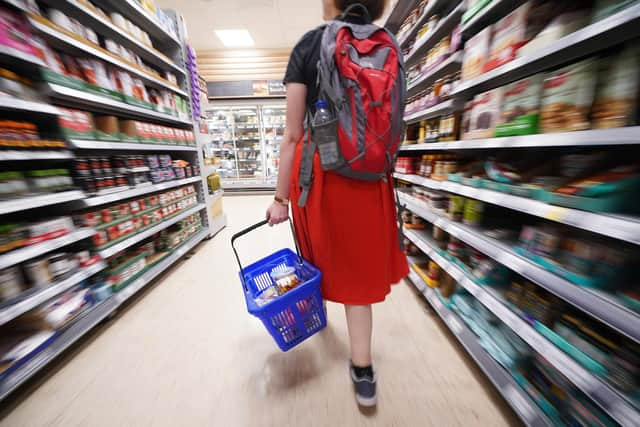How can consumers support British farmers if packaging is confusing? - Sarah Todd
Thailand? Every blue moon the odd rasher of bacon from Denmark has accidentally crossed over the checkout. And there was once some venison that had tartan packaging - yet turned out to be “produce of EU countries” - but Asia is a whole new sorry state of affairs.
The point of mentioning this is just to illustrate that if somebody as keen to support British farmers as this correspondent keeps getting caught out then what hope is there for the thousands of busy shoppers who have their hearts in the right place but don’t have quite the same dedication to the cause.
Advertisement
Hide AdAdvertisement
Hide AdThe upshot has been the ordering of a first ever pair of reading glasses. Not for books or newspapers, but to have in supermarkets to save squinting at the small print.


Anyway, enough moaning. Great to see a positive story in the farming press.
Having spent much of his life in the army, Martin Frodsham found it difficult to find a new career.
He signed his oath to the late Queen Elizabeth at the age of 16 and, after basic training, started an apprenticeship as a fitter. He was appointed as a maintainer of the Challenger 2 battle tank and was eventually deployed overseas.
Advertisement
Hide AdAdvertisement
Hide AdAs a tank crew member he was part of a highly trained combat team working on the fastest and most advanced battle tanks in the world. Later in his career he worked as an instructor, teaching soldiers to safely operate, service and maintain equipment.
His career was brought to a standstill by a back injury and, after 17 years in the military resettling into civilian life, especially with PTSD, was easier said than done.
After struggling to find work he came across Forces Farming, an initiative that supports army veterans into the farming industry, and the rest is history. Through this, he has had days out at agricultural shows, been on courses and got hundreds of hours of hands-on farming work experience under his belt. He has now been accepted onto farm machinery giant John Deere's military hiring program to be a mobile service technician/engineer.
The world often seems a bananas place but then, every so often, something like this comes along and everything feels better. Almost as if we shouldn’t worry, that there is some common sense left in the world.
Advertisement
Hide AdAdvertisement
Hide AdIn Martin’s own words, “Veterans are fast learners, but being in the military things get done in a slow, methodical and safe way.” Sounds perfect and the price of farm kit these days, who wants somebody speeding in and pretending they are working on a formula one racing pitstop?
There must be so many similar crossovers that could be organised. How many tough secondary schools could do with some staff with the steely determination and discipline learnt on military manoeuvres? So often, applicants get jobs just because they have that bit of paper - the university degree - when there are so many other transferable skills that would be brilliant.
It was the Yorkshire Federation of Young Farmers’ Clubs public speaking competition in Harrogate at the weekend and, as an aside, the personality these children and young adults demonstrated by the bucketload is worth any amount of formal academic qualifications.
To stand and deliver a speech for ten minutes or debate a point in a formal setting are all fantastic life skills for these youngsters to have under their belt.
Advertisement
Hide AdAdvertisement
Hide AdFinally, back to where we started on the food aisles, and a belated New Year’s resolution is to stop using the term full fat to describe our blue top milk order.
It’s a small thing, but from now onwards, it’s going to be referred to by its correct name ‘whole milk’. It’s only 4 per cent fat. Now this correspondent can’t do maths to save her life, but doesn’t that make it 96 per cent fat free?
In a world where image is everything, it seems very much an own goal from the marketing industry to refer to the word ‘fat’ in the title of any products; giving the impression that it’s unhealthy and therefore should be avoided.
In reality, of course, it’s healthier than anything because it hasn’t been processed - or mucked about with - to put it bluntly. No need to put those new specs on to see the ingredients of the white stuff.
Comment Guidelines
National World encourages reader discussion on our stories. User feedback, insights and back-and-forth exchanges add a rich layer of context to reporting. Please review our Community Guidelines before commenting.